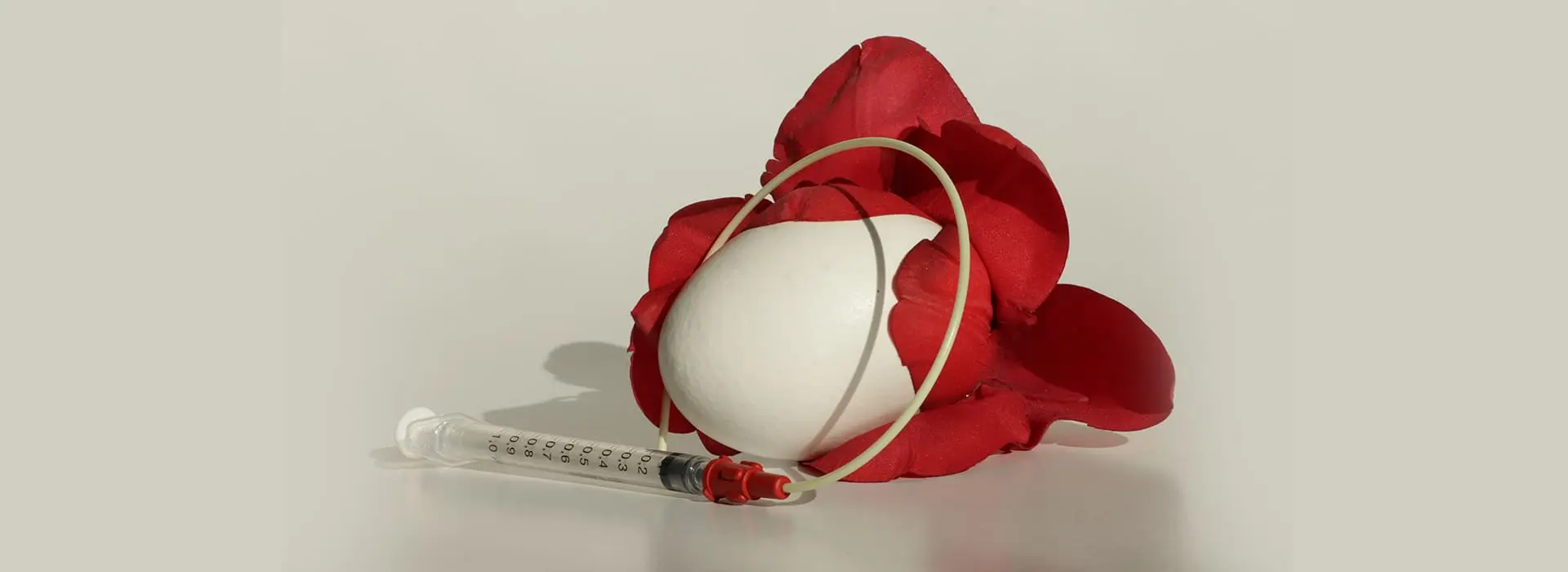

IUI stands for Intrauterine Insemination, a fertility treatment that helps couples conceive by placing husband's or donor sperms directly into the female partener's uterus so as to bring more number of sperms in close proximity to the egg and improve chances of fertilization and pregnancy. It is a minimally invasive, cost-effective, and first-line fertility treatment for couples experiencing male infertility, unexplained infertility, or ovulation disorders.
Many couples compare IVF vs. IUI when choosing a fertility treatment for the first time. IUI is less invasive, more affordable, very simple treatment and requires minimal medication. In contrast, IVF is a time taking process which involves egg retrieval, fertilization in a lab, and embryo transfer, making it more complex infertility treatment. But IVF has a much higher success rate than IUI. IUI treatment is often recommended before trying IVF.
IUI is recommended for couplies facing issues like:
The doctor tracks the woman’s ovulation cycle using ultrasound or blood tests. In some cases, ovulation-stimulating medications or injection are prescribed to improve eggs quality and quantity in female partner.
Semen sample is collected from the male partner (or donor in case where couple wants to use donor sperms). It is washed and cleaned to separate the sperms from the semen, contaminants, dead/immotile sperms. Motile, good quality sperms are selected for insemination
When the follicle is mature enough, hCG injection is given to stimulate egg release (ovulation), which is when the IUI procedure is planned. On the day of procedure, the washed sperm is directly inserted into the female partner's uterus using a thin catheter, increasing the chances of fertilization. The procedure is painless and takes only 5-10 minutes.
Hormonal support (progesterone) may be given post procedure and the woman is advised to rest briefly. A pregnancy test is taken after 14 days to confirm results.
At Femcare fertility, you will first be given a detailed overview of the process and all your queries will be answered by our highly qualified infertility specialist. Our high-end infertility clinic has facilities of sperm washing & preparation, follicular monitoring and IUI under one roof to ensure a smooth process for you.
The cost of IUI treatment depends on several factors, including location, medication, clinic expertise and who's sperm are being used (Husband's or donor sperms). IUI is more affordable than IVF, making it an ideal option for couples seeking a cost-effective fertility solution. We at Femcare Fertility provide the most affordable IUI treatment option to our patients to give them a fair chance to get pregnant with the less invasive infertility treatment.
The success rate of IUI varies based on factors such as age, fertility condition, and sperm quality. For higher success rates lifestyle changes, fertility medications, and multiple IUI cycles are recommended.
1. What is the full form of IUI?
The full form of IUI is Intrauterine Insemination, a simple fertility treatment that improves the chances of pregnancy by placing sperm directly into the uterus.
2. What is the success rate of IUI treatment?
The IUI success rate is 15-20% per cycle for women under 35 and decreases with age. Factors like sperm quality, ovulation, and uterine health can also increase or decrease success.
3. How many IUI cycles should I try before considering IVF?
The number of IUI cycles differs from patient to patient. Based on the couple's fertility screening results, doctors take the call. But usually 2-3 IUI cycles are recommended.
4. Is IUI treatment painful?
No, IUI is a simple and painless procedure similar to a routine gynecological exam. Some women may experience mild cramps post-procedure.
5. What is the cost of IUI treatment in Pune and Kolkata?
The IUI treatment cost depends on the clinic, medications, and location. We, at Femcare Fertility, provide very affordable IUI treatment in Kolkata and Pune.
6. Can I do IUI at home?
No, IUI is a simple process but must be performed by fertility specialists in a controlled medical setting to ensure safety and maximize pregnancy chances.
7. What is the difference between IUI and IVF?
IUI is a simpler, less expensive fertility treatment, whereas IVF is a long process which involves egg retrieval, fertilization in a lab, and embryo transfer, making it more effective for severe infertility cases with higher success rate.
Fill in the details below to get a callback instantly